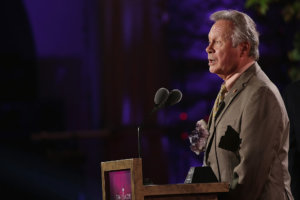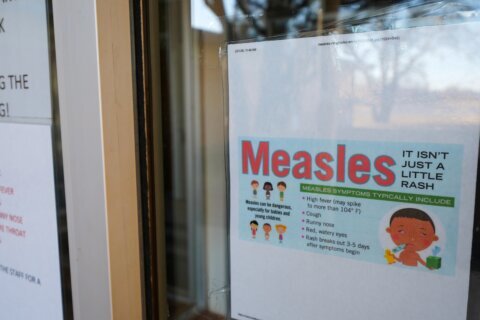WASHINGTON — In September, Montgomery County, Maryland, will open a new elementary school named for Bayard Rustin, a not oft remembered leader who played a pivotal role in the burgeoning civil rights era.
Rustin helped spark a movement that would change the course of American history — even if his name might not be as instantly recognizable as others in the civil rights movement. He was an adviser and an intellectual who, unlike some of his fellow organizers, kept a relatively low profile.
Rustin was the chief architect of the 1963 March on Washington, where Martin Luther King Jr. would stand on the steps of the Lincoln Memorial and galvanize millions throughout the country with his “I Have a Dream” speech.
Though Rustin spoke at the march, he remained largely in the background. He was a gay man at a time when that was seen as a social and political liability. One historian referred to Rustin as the “lost prophet” of the civil rights movement.
Walter Naegle, Rustin’s partner for the last 10 years of his life, said Rustin was more than the organizer of an event that would shape American history — he was a fervent believer in fighting for change, but fighting peacefully.

“He was a Quaker,” Naegle told WTOP. “It’s fair to call him a humanitarian and a striver for equality across boundaries.”
Naegle said Rustin’s fight for civil rights was a struggle for human rights. “It wasn’t just about African-Americans. It wasn’t just about gay people. It wasn’t just about any particular group. He really worked to improve the lot of everybody.”
When Naegle was told that Montgomery County was opening Bayard Rustin Elementary School, he sounded pleased. “He always thought that getting a good education was a good foundation for improving your lot,” Naegle said.
“Part of the lessons that we learned from him is really to be yourself: be open and being honest.”
That extended to Rustin’s sexuality. “His being gay was something that he never really hid,” Naegle said.
Though Rustin could appear fiery as a speaker, Naegle said his goal was to bring people together — a strategy Naegle said could be useful today.
“There’s a lot of anger out there, and it’s certainly understandable,” Naegle said. “But, I think you need to be building bridges, not putting up walls.”
If there was something else Naegle thought Rustin’s legacy could teach kids, he said, “Be yourself, and put your best self forward would probably be a good lesson for kids.”
Naegle suggested that anyone wanting to learn more about the contributions Rustin made — and the challenges he faced — check out Rustin.org. That links to the site of the filmmakers who made “Brother Outsider,” which premiered at the Sundance Film Festival and aired on PBS’ POV series.
The school is located in Rockville and the first day of classes is Sept. 4.








